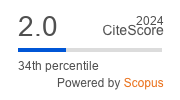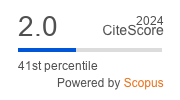| 4/2012 - 10 |
Guidelines for Protection against Overcurrent in Photovoltaic GeneratorsGARCIA, O. |
| Extra paper information in |
| Click to see author's profile in |
| Download PDF |
Author keywords
electrical safety, fault currents, photovoltaic systems, protection, simulation
References keywords
photovoltaic(21), systems(15), safety(10), power(10), energy(10), solar(7), hernandez(7), pvsec(6), pvsc(6), protection(6)
Blue keywords are present in both the references section and the paper title.
About this article
Date of Publication: 2012-11-30
Volume 12, Issue 4, Year 2012, On page(s): 63 - 70
ISSN: 1582-7445, e-ISSN: 1844-7600
Digital Object Identifier: 10.4316/AECE.2012.04010
Web of Science Accession Number: 000312128400010
SCOPUS ID: 84872798174
Abstract
This paper gives the scientific background and basic premises that should guide the design of overcurrent protection in photovoltaic generators (PVGs). Overcurrent protection first requires a thorough knowledge of potential risk scenarios and how to evaluate them. Accordingly, this paper describes electrical faults that may pose a risk to PVG because of overcurrents. It also evaluates these faults with a dynamic PVG model. This simulation model provides a realistic vision of the thermal and electrical behavior of the PVG from which implications of overcurrent protection can be drawn. A field test on a functioning 68-kWp PVG showed the accuracy of the simulation results regarding the risk of overcurrents, and validated the model used in our study. Within this context, this paper discusses how protective measures in the IEC 60364-4-43 can be applied to PVG. Since the measures in this standard were specifically conceived for alternating current low voltage (AC LV) systems, the unique operational characteristics of a PVG now make it necessary to revise and adapt them. |
| References | | | Cited By |
Web of Science® Times Cited: 23 [View]
View record in Web of Science® [View]
View Related Records® [View]
Updated 3 weeks, 6 days ago
SCOPUS® Times Cited: 27
View record in SCOPUS® [Free preview]
View citations in SCOPUS® [Free preview]
[1] Fault detection and diagnosis methods for photovoltaic systems: A review, Mellit, A., Tina, G.M., Kalogirou, S.A., Renewable and Sustainable Energy Reviews, ISSN 1364-0321, Issue , 2018.
Digital Object Identifier: 10.1016/j.rser.2018.03.062 [CrossRef]
[2] Protection coordination scheme for distribution networks with high penetration of photovoltaic generators, Fani, Bahador, Bisheh, Hadi, Sadeghkhani, Iman, IET Generation, Transmission & Distribution, ISSN 1751-8687, Issue 8, Volume 12, 2018.
Digital Object Identifier: 10.1049/iet-gtd.2017.1229 [CrossRef]
[3] Reliability of photo-voltaic power plants, Cohen, Daniella, Elmakis, David, Electric Power Systems Research, ISSN 0378-7796, Issue , 2023.
Digital Object Identifier: 10.1016/j.epsr.2023.109736 [CrossRef]
[4] Hot spot detection and prevention using a simple method in photovoltaic panels, Ghanbari, Teymoor, IET Generation, Transmission & Distribution, ISSN 1751-8687, Issue 4, Volume 11, 2017.
Digital Object Identifier: 10.1049/iet-gtd.2016.0794 [CrossRef]
[5] An Improved Structure of an Adaptive Excitation Control System Operating under Short-Circuit, FILIP, I., PROSTEAN, O., VASAR, C., SZEIDERT, I., Advances in Electrical and Computer Engineering, ISSN 1582-7445, Issue 2, Volume 16, 2016.
Digital Object Identifier: 10.4316/AECE.2016.02006 [CrossRef] [Full text]
[6] WITHDRAWN: Coordination of IDMT relays in the radial distribution system with distributed generation, Kosaleswara Reddy, T., Devaraju, T., Vijaya Kumar, M., Materials Today: Proceedings, ISSN 2214-7853, 2021.
Digital Object Identifier: 10.1016/j.matpr.2020.12.128 [CrossRef]
[7] A thermal model for amorphous silicon photovoltaic integrated in ETFE cushion roofs, Zhao, Bing, Chen, Wujun, Hu, Jianhui, Qiu, Zhenyu, Qu, Yegao, Ge, Binbin, Energy Conversion and Management, ISSN 0196-8904, Issue , 2015.
Digital Object Identifier: 10.1016/j.enconman.2015.04.062 [CrossRef]
[8] Sensitivity analysis of implicit correlations for photovoltaic module temperature: A review, Coskun, Can, Toygar, Ugurtan, Sarpdag, Ozgur, Oktay, Zuhal, Journal of Cleaner Production, ISSN 0959-6526, Issue , 2017.
Digital Object Identifier: 10.1016/j.jclepro.2017.07.080 [CrossRef]
[9] A current based approach for hotspot detection in photovoltaic strings, Karimi, Mohsen, Samet, Haidar, Ghanbari, Teymoor, Moshksar, Ehsan, International Transactions on Electrical Energy Systems, ISSN 2050-7038, Issue 9, Volume 30, 2020.
Digital Object Identifier: 10.1002/2050-7038.12517 [CrossRef]
[10] A novel fault diagnosis technique for photovoltaic systems based on artificial neural networks, Chine, W., Mellit, A., Lughi, V., Malek, A., Sulligoi, G., Massi Pavan, A., Renewable Energy, ISSN 0960-1481, Issue , 2016.
Digital Object Identifier: 10.1016/j.renene.2016.01.036 [CrossRef]
[11] Nature inspired evolutionary algorithm integrated performance assessment of floating solar photovoltaic module for low-carbon clean energy generation, Goswami, Anik, Sadhu, Pradip Kumar, Sustainable Operations and Computers, ISSN 2666-4127, Issue , 2022.
Digital Object Identifier: 10.1016/j.susoc.2021.10.002 [CrossRef]
[12] Analysis of current and voltage indicators in grid connected PV (photovoltaic) systems working in faulty and partial shading conditions, Silvestre, Santiago, Kichou, Sofiane, Chouder, Aissa, Nofuentes, Gustavo, Karatepe, Engin, Energy, ISSN 0360-5442, Issue , 2015.
Digital Object Identifier: 10.1016/j.energy.2015.03.123 [CrossRef]
[13] Design Options for Current Limit and Power Limit Circuit Protections for LDOs, PLESA, C.-S., DIMITRIU, B., NEAG, M., Advances in Electrical and Computer Engineering, ISSN 1582-7445, Issue 1, Volume 19, 2019.
Digital Object Identifier: 10.4316/AECE.2019.01008 [CrossRef] [Full text]
[14] Detection of Typical Defects in Silicon Photovoltaic Modules and Application for Plants with Distributed MPPT Configuration, Ahmad, Jawad, Ciocia, Alessandro, Fichera, Stefania, Murtaza, Ali Faisal, Spertino, Filippo, Energies, ISSN 1996-1073, Issue 23, Volume 12, 2019.
Digital Object Identifier: 10.3390/en12234547 [CrossRef]
[15] An Overall Linearized Modeling Method and Associated Delay Time Model for the PV System, Zhu, Xianping, Li, Shaowu, Fan, Jingxun, Energies, ISSN 1996-1073, Issue 10, Volume 16, 2023.
Digital Object Identifier: 10.3390/en16104202 [CrossRef]
[16] A reliable approach for modeling the photovoltaic system under partial shading conditions using three diode model and hybrid marine predators-slime mould algorithm, Yousri, Dalia, Fathy, Ahmed, Rezk, Hegazy, Babu, Thanikanti Sudhakar, Berber, Mohamed R., Energy Conversion and Management, ISSN 0196-8904, Issue , 2021.
Digital Object Identifier: 10.1016/j.enconman.2021.114269 [CrossRef]
[17] A Novel Approach of Perturb and Observe Technique Adapted to Rapid Change of Environmental Conditions and Load, Belkaid, Abdelhakim, Colak, Ilhami, Kayisli, Korhan, Electric Power Components and Systems, ISSN 1532-5008, Issue 4-5, Volume 48, 2020.
Digital Object Identifier: 10.1080/15325008.2020.1793842 [CrossRef]
[18] Influences of Power Electronic Converters on Voltage–Current Behaviors During Faults in DGUs—Part II: Photovoltaic Systems, Saleh, S. A., Aljankawey, A. S., Alsayid, B., Abu-Khaizaran, M. S., IEEE Transactions on Industry Applications, ISSN 0093-9994, Issue 4, Volume 51, 2015.
Digital Object Identifier: 10.1109/TIA.2014.2387482 [CrossRef]
[19] PV based distributed generation power system protection: A review, van der Walt, Hermanus L.R., Bansal, Ramesh C., Naidoo, Raj, Renewable Energy Focus, ISSN 1755-0084, Issue , 2018.
Digital Object Identifier: 10.1016/j.ref.2017.12.002 [CrossRef]
[20] Photothermal performance of an amorphous silicon photovoltaic panel integrated in a membrane structure, Zhao, Bing, Hu, Jianhui, Chen, Wujun, Qiu, Zhenyu, Zhou, Jinyu, Qu, Yegao, Ge, Binbin, Journal of Physics D: Applied Physics, ISSN 0022-3727, Issue 39, Volume 49, 2016.
Digital Object Identifier: 10.1088/0022-3727/49/39/395601 [CrossRef]
[21] An experimental study on photovoltaic module with optimum power point tracking method, Thangamani, Kaliraja, Manickam, Martin Leo, Chellaiah, Chellaswamy, International Transactions on Electrical Energy Systems, ISSN 2050-7038, Issue 1, Volume 30, 2020.
Digital Object Identifier: 10.1002/2050-7038.12175 [CrossRef]
[22] General modeling procedure for photovoltaic arrays, Bastidas-Rodríguez, Juan David, Trejos-Grisales, Luz Adriana, González-Montoya, Daniel, Ramos-Paja, Carlos Andrés, Petrone, Giovanni, Spagnuolo, Giovanni, Electric Power Systems Research, ISSN 0378-7796, Issue , 2018.
Digital Object Identifier: 10.1016/j.epsr.2017.09.023 [CrossRef]
[23] Intelligent fault diagnosis of photovoltaic arrays based on optimized kernel extreme learning machine and I-V characteristics, Chen, Zhicong, Wu, Lijun, Cheng, Shuying, Lin, Peijie, Wu, Yue, Lin, Wencheng, Applied Energy, ISSN 0306-2619, Issue , 2017.
Digital Object Identifier: 10.1016/j.apenergy.2017.05.034 [CrossRef]
[24] Shade dispersion-based photovoltaic array configurations for performance enhancement under partial shading conditions, Pachauri, Rupendra, Yadav, Anurag Singh, Chauhan, Yogesh K., Sharma, Abhinav, Kumar, Vinod, International Transactions on Electrical Energy Systems, ISSN 2050-7038, Issue 7, Volume 28, 2018.
Digital Object Identifier: 10.1002/etep.2556 [CrossRef]
[25] Over current Numerical relay analysis for protection of PV generating System, Ralhan, Shimpy, Nayak, Akshay Kumar, 2022 Second International Conference on Advances in Electrical, Computing, Communication and Sustainable Technologies (ICAECT), ISBN 978-1-6654-1120-2, 2022.
Digital Object Identifier: 10.1109/ICAECT54875.2022.9808006 [CrossRef]
[26] Influences of power electronic converters on current-voltage behaviors during faults in DGUs-Part II: Photovoltaic systems, Saleh, S. A., Aljankawey, A. S., Alsayid, B., Abu Khaizaran, M. S., 2014 IEEE Industry Application Society Annual Meeting, ISBN 978-1-4799-2288-8, 2014.
Digital Object Identifier: 10.1109/IAS.2014.6978505 [CrossRef]
Disclaimer: All information displayed above was retrieved by using remote connections to respective databases. For the best user experience, we update all data by using background processes, and use caches in order to reduce the load on the servers we retrieve the information from. As we have no control on the availability of the database servers and sometimes the Internet connectivity may be affected, we do not guarantee the information is correct or complete. For the most accurate data, please always consult the database sites directly. Some external links require authentication or an institutional subscription.
Web of Science® is a registered trademark of Clarivate Analytics, Scopus® is a registered trademark of Elsevier B.V., other product names, company names, brand names, trademarks and logos are the property of their respective owners.
Faculty of Electrical Engineering and Computer Science
Stefan cel Mare University of Suceava, Romania
All rights reserved: Advances in Electrical and Computer Engineering is a registered trademark of the Stefan cel Mare University of Suceava. No part of this publication may be reproduced, stored in a retrieval system, photocopied, recorded or archived, without the written permission from the Editor. When authors submit their papers for publication, they agree that the copyright for their article be transferred to the Faculty of Electrical Engineering and Computer Science, Stefan cel Mare University of Suceava, Romania, if and only if the articles are accepted for publication. The copyright covers the exclusive rights to reproduce and distribute the article, including reprints and translations.
Permission for other use: The copyright owner's consent does not extend to copying for general distribution, for promotion, for creating new works, or for resale. Specific written permission must be obtained from the Editor for such copying. Direct linking to files hosted on this website is strictly prohibited.
Disclaimer: Whilst every effort is made by the publishers and editorial board to see that no inaccurate or misleading data, opinions or statements appear in this journal, they wish to make it clear that all information and opinions formulated in the articles, as well as linguistic accuracy, are the sole responsibility of the author.



